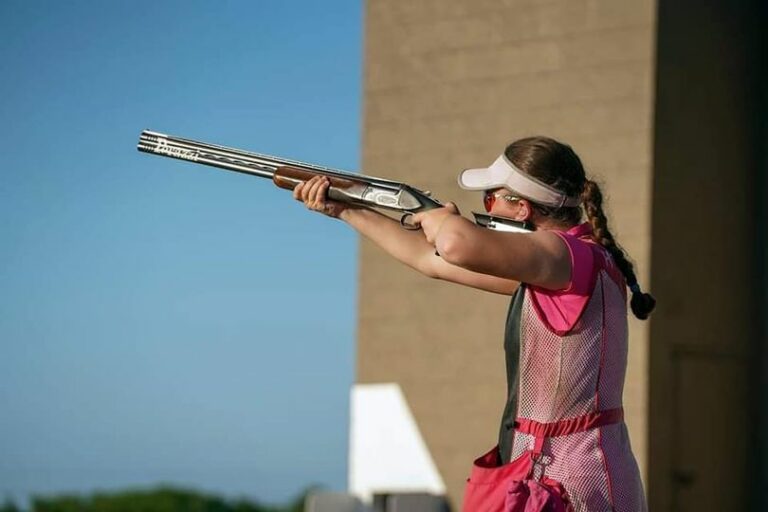The full Ninth Circuit Court of Appeals will not hear an appeal to a ruling against the Golden State’s law banning gun ads that could appeal to minors.
Judges on the court refused the state’s request for an en banc hearing on Tuesday. None of the court’s 29 judges voted to take Junior Sports Magazines Inc. v. Bonta to the full panel. That leaves the case against AB 2571, which bans gun ads that could be “attractive to minors,” in the hands of the three-judge panel that found it likely unconstitutional last year.
California has had good luck getting rehearings and reversals of rulings against their gun laws in front of the full court in recent decades. So, plaintiffs in this case celebrated the court’s decision not to take up the case.
“It seems like forever since the Ninth Circuit has refused to hear a gun case en banc,” Alan Gottlieb, head of plaintiff Second Amendment Foundation, told The Reload. “Hopefully, this is a new trend.”
If the denial is the beginning of a trend where the Ninth Circuit becomes more picky about rehearing rulings against California’s gun laws, it could lower the practical bar those challenges have to overcome. En banc panels of the Ninth Circuit have upheld myriad of gun restrictions found unconstitutional by lower courts in the decades since the Supreme Court’s landmark 2008 District of Columbia v. Heller decision recognizing an individual right to keep and bear arms. The full court has yet to rule in favor of a gun-rights plaintiff even after the High Court handed down another landmark gun decision in 2022’s New York State Rifle and Pistol Association v. Bruen, but if the circuit becomes less willing to rehear rulings against gun restrictions plaintiffs won’t have to rely on intervention from the Supreme Court to win.
The case stems from California’s passage of AB 2571 as part of a broad effort to tighten gun laws in the wake of the Bruen ruling. The law allowed state officials to impose a $25,000 civil fine on “firearm industry members” who advertised “any firearms-related product” judged to be “appealing to minors.” California Governor Gavin Newsom (D.) said the bill was in response to advertising for Wee 1 Tactical’s JR-15, a .22lr rifle styled to look like an AR-15. He argued the bill “targets the gun lobby and manufacturers that are preying on our children.”
However, upon passage, the law’s broad language effectively led to the shutdown of youth shooting sports across the state. The law forced many leagues and competitions that had operated in the state without issue for generations to suddenly suspend activities or face devastating fines.
The California State High School Clay Target League suspended operations in August 2022, citing the law.
“As a school-based activity serving students from 6th-12th grade, these provisions serve to outlaw the very name and existence of the California State High School Clay Target League,” the group’s website said at the time.
It also harmed many young competitors, including some Olympic hopefuls. Lola Fitzerald, who was 16 years old when the law took effect, was effectively shut out of participating in her favorite sport. One that she’d excelled at, winning four All-American and three World Junior clay shooting titles before the ban kicked in.
“I’ve been cut off from all tournaments around the country,” Lola told The Reload in 2022. “I’m no longer allowed to see what the dates of tournaments are. I’m no longer allowed to input scores. And, frankly, some of the tournaments probably don’t want me to go anymore because of the risk.”
She said the law’s impact on her was unfair.
“I think I have been wronged by this law,” she said. “I have very much been wronged.”
The backlash led California lawmakers to amend the law in an effort to ensure youth shooting sports were exempted. Many of the leagues opened back up after that change. But it didn’t satisfy gun-rights advocates who pushed forward with their case against the restrictions.
In September 2023, a three-judge panel found the law’s remaining restrictions on gun advertising probably violate the First Amendment. They reversed a lower court decision upholding the law.
“[T]his case is about whether California can ban a truthful ad about firearms used legally by adults and minors—just because the ad ‘reasonably appears to be attractive to minors,'” Judge Kenneth K. Lee, a Donald Trump appointee, wrote for the panel. “So, for example, an ad showcasing a safer hunting rifle with less recoil for minors would likely be unlawful in California. Under our First Amendment jurisprudence, states can ban truthful and lawful advertising only if it ‘materially’ and ‘directly’ advances a substantial government interest and is no more extensive than necessary. California likely cannot meet this high bar.”
The panel argued California offered up no evidence that its advertising restrictions forward its goal of reducing gun violence or accomplish anything measurable at all.
“There is no evidence in the record that a minor in California has ever unlawfully bought a gun, let alone because of an ad. Nor has the state produced any evidence that truthful ads about lawful uses of guns—like an ad about hunting rifles in Junior Sports Magazines’ Junior Shooters—encourage illegal or violent gun use among minors,” Judge Lee wrote. “Simply put, California cannot lean on gossamers of speculation to weave an evidence-free narrative that its law curbing the First Amendment’ significantly’ decreases unlawful gun use among minors. The First Amendment demands more than good intentions and wishful thinking to warrant the government’s muzzling of speech.”
Chuck Michel, president of plaintiff California Rifle and Pistol Association, noted the decision doesn’t fully resolve the case. But he said the en banc denial is what the group hoped for and framed it as a rebuke of California’s gun restrictions.
“Although this does not end the case, this is the outcome we were hoping for,” he said in a statement. “Newsom’s efforts to eliminate youth shooting activities, hunting, and the next generation of Second Amendment advocates who understand their rights has been stopped again.”
California Attorney General Rob Bonta (D.), who defended the state in the case, did not respond to a request for comment.
All three judges on the panel that ruled against AB 2571 also voted against recommending the case go to the full court. The case will now return to the district court to hand down a preliminary injunction against the law in line with the panel’s findings.







Only Members can view comments. Become a member today to join the conversation.